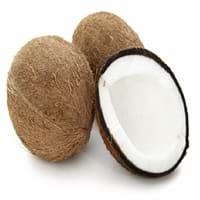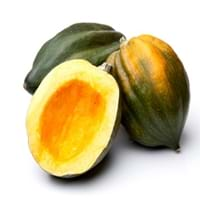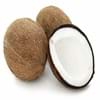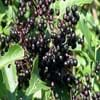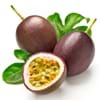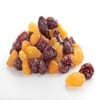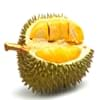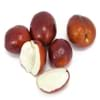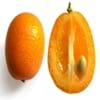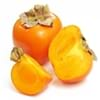Health Benefits
Acidity treatment, Acts as natural antibiotic, Anti-oxidant properties, Aphonia treatment
Anti-inflammatory properties, Arthritis treatment, Regulates Blood Sugar
General Benefits
Anti-inflammatory properties, Body hydration, Boosts immune system, Controls blood sugar levels, Digestive aid, Fights against infections, Flu treatment, Healing of wounds, Helps in weight loss, Maintains healthy cholesterol level
Boosts immune system, Controls blood sugar levels, Digestive aid
Skin Benefits
Anti-aging benefits, Heals sunburn, Hydrates skin, Reduces wrinkles, Skin rejuvenation, Skin revitalization, Treatment of skin diseases
Nourishes skin, Protects skin from oxidative stress
Hair Benefits
Promotes longer and healthier hair, Regulates hair growth, Rejuvenates scalp, Shiny hair, Treatment of dandruff
Prevents hair loss, Promotes longer and healthier hair, Regulates hair growth
Allergy Symptoms
Abdominal pains, Breathing difficulty, Itching in tongue and other parts of mouth, Nasal congestion, Nausea, Runny nose, Vomiting
Asthma, Red rash, Swelling of mouth, tongue or lips
Side Effects
Allergic reaction, Indigestion, Weight gain
Diarrhoea, Vomiting
Best Time to Eat
Along with meal, Best if taken as a breakfast (or empty stomach), As a snack in the late afternoon, Morning time (before lunch)
Along with meal, As a snack in the late afternoon, Don't eat after meal, Eat the fresh ones, avoid mixing with any other foods, don't eat after meal.
Vitamin B5 (Pantothenic Acid)
Vitamin C (Ascorbic Acid)
Vitamin E (Tocopherole)
Not Available
Vitamin K (Phyllochinone)
Not Available
Lutein+Zeaxanthin
Not Available
Phytosterol
Not Available
Calories in Fresh Fruit with Peel
Not Available
Calories in Fresh Fruit without Peel
Not Available
Calories in Frozen Form
Not Available
Type
Tree fruit, Tropical
Berry
Season
All seasons
Winter
Varieties
Tall Varieties- West Coast Tall, Laccadiv Micro, Andaman Ordinary, Fiji, Kappadam, San Ramon, Philippines, Spicate, and Pratap. Dwarf Varieties- Chowghat Orange Dwarf (COD) and Chowghat Green Dwarf (CGD)
Bush Table Queen, Heirloom Table Queen, Festival Hybrid, Early Acorn Hybrid, Table Ace, Ebony and Cream of the Crop
Color
Brown, Green
Dark green, Green-yellow, Orange green
Inside Color
White
Yellow
Taste
Juicy, Sweetish
Sweetish
Origin
America, India
Central America, North America, Unknown
Soil Type
Clay, Sand
Well-drained
Climatic Conditions
Hot, Humid
Cold, Sunny
Facts about
- Burning coconut's husk helps repel mosquitoes.
- Surveys say that falling coconut kills hundreds every year.
- Coconut water is used as a substitute Blood Plasma & is called "father of modern tissue culture science".
- It was named as Acorn Squash for its resemblance to a large ribbed acorn.
- It is said that squash was being grown in Mexico as long as 10,000 years ago.
- It was the first food cultivated by native American Indians.
Top Producer
Indonesia
China
Other Countries
Brazil, India, Philippines, Sri Lanka
Egypt, India, Iran, Italy, Mexico, Russia, Turkey, Ukraine, United States of America
Top Importer
United States of America
Costa Rica
Top Exporter
Philippines
United States of America
Botanical Name
Cocos nucifera
Cucurbita Pepo
Synonym
Not Available
Winter Squash
Subkingdom
Tracheobionta
Tracheobionta
Division
Magnoliophyta
Magnoliophyta
Class
Liliopsida
Magnoliopsida
Subclass
Arecidae
Dillenhidae
Order
Arecales
Cucurbitales
Family
Arecaceae
Cucurbitaceae
Generic Group
Arecaceae
Not Available
Compare Coconut and Acorn squash
It is important compare Coconut and Acorn squash as both the fruits have a different nutritional value. Their comparison can be done on the basis of their vitamin and mineral content, calories, benefits as well as characteristics, making it easier for us to choose the best fruit for our diet. Their general health benefits are as follows:
Coconut Benefits: anti-inflammatory properties, body hydration, boosts immune system, controls blood sugar levels, digestive aid, fights against infections, flu treatment, healing of wounds, helps in weight loss and maintains healthy cholesterol level.
Acorn squash Benefits: boosts immune system, controls blood sugar levels and digestive aid.
Fruits are also used as a remedy for various hair problems. The hair benefits of Coconut are: promotes longer and healthier hair, regulates hair growth, rejuvenates scalp, shiny hair and treatment of dandruff and hair benefits of Acorn squash are: prevents hair loss, promotes longer and healthier hair and regulates hair growth. Some fruits are known to cause allergic reactions. The allergy symptoms of first fruit are: abdominal pains, breathing difficulty, itching in tongue and other parts of mouth, nasal congestion, nausea, runny nose and vomiting and the symptoms of second fruit are: asthma, red rash and swelling of mouth, tongue or lips. Get sorted Coconut vs Acorn squash comparison with the help of fruit comparison tool by fruitvs.com.
